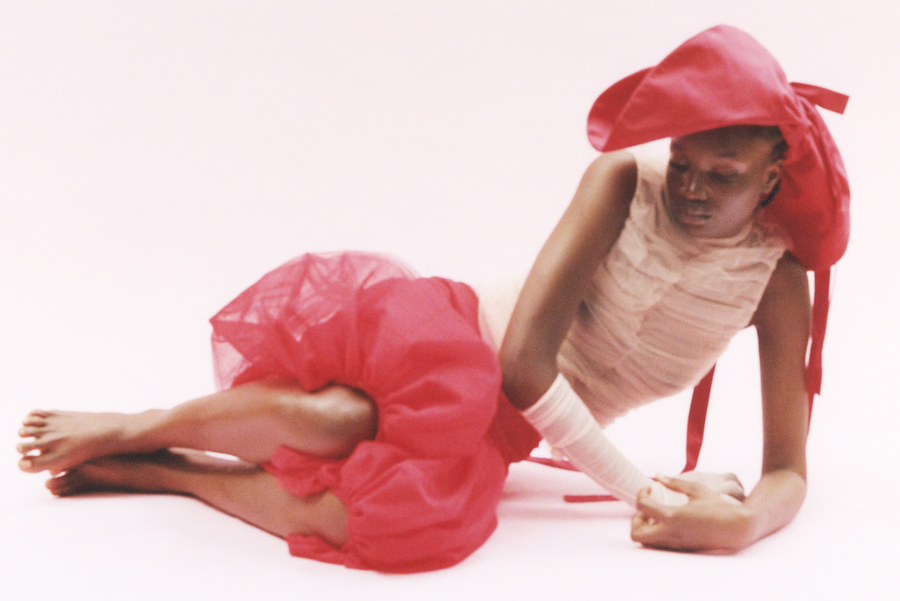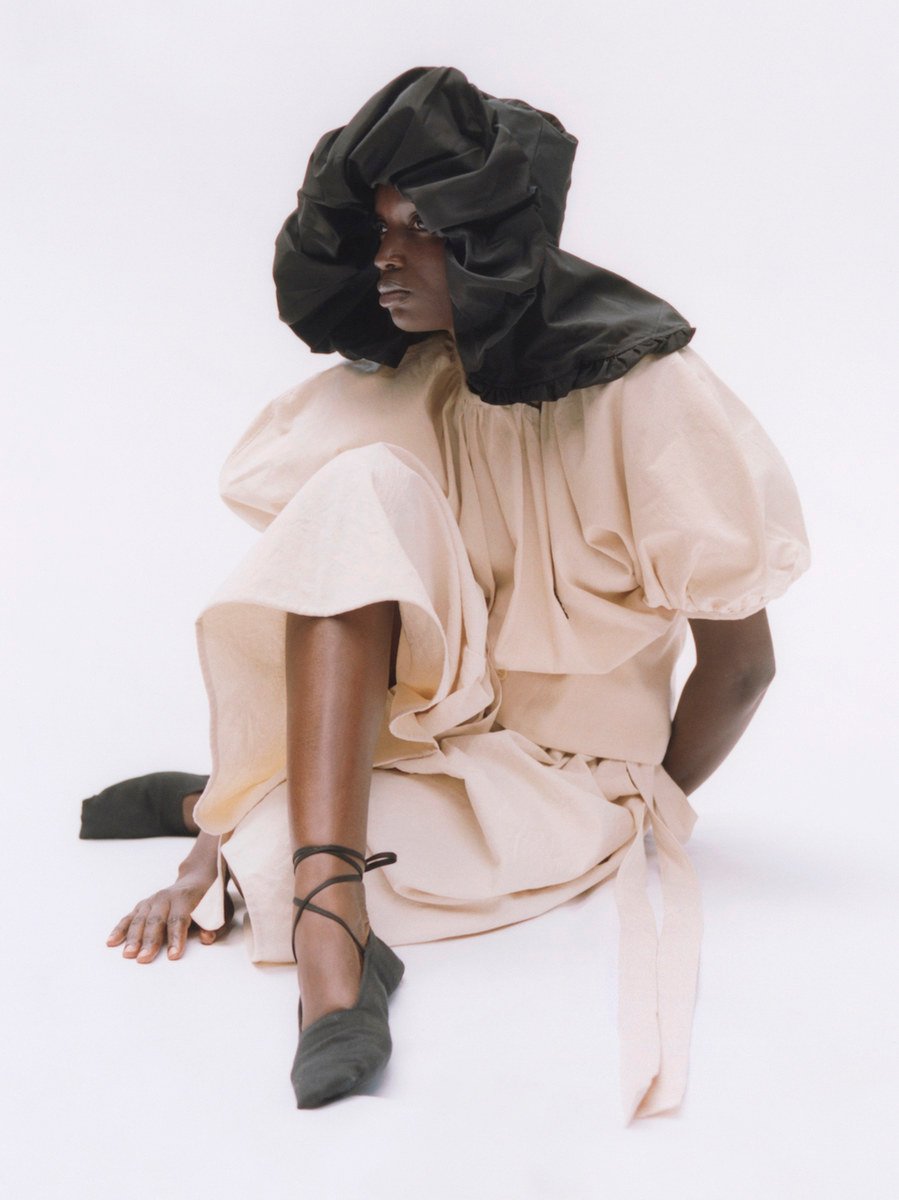DUBAI: “I’m doing femininity on my own terms,” says Cynthia Merhej, a LVMH Prize 2021 semi-finalist — the first-ever Arab woman to be selected as a semi-finalist for the prestigious accolade — when asked to describe her womenswear label Renaissance Renaissance.
Merhej, the 31-year-old Lebanese designer, who studied graphic design and illustration at London’s prestigious Central Saint Martins art school, was always destined to be involved in the fashion industry. She hails from multiple generations of designers — her great-grandmother and mother both ran their own ateliers in Palestine and Lebanon.

Her focus and determination to push the envelope can be traced back to her family history. “She was an anomaly,” said Merhej of her great-grandmother. “To have this really strong woman who decided to start her own fashion business and run it herself was pretty unique at the time.”
Merhej grew up in a tiny suburb in Beirut. Her earliest childhood memories are of her mother’s bustling atelier, watching seamstresses at work and seeing her mother carefully drape clothing on clients all day.
“I didn’t have the typical story where I’m looking at fashion as an outsider and thinking ‘wow, it looks so glamorous, beautiful and fantastical.’ Fashion was something very real. I was exposed to the whole other side of it, which you usually don’t hear about or see in magazines or fashion shows and things like that,” she said.
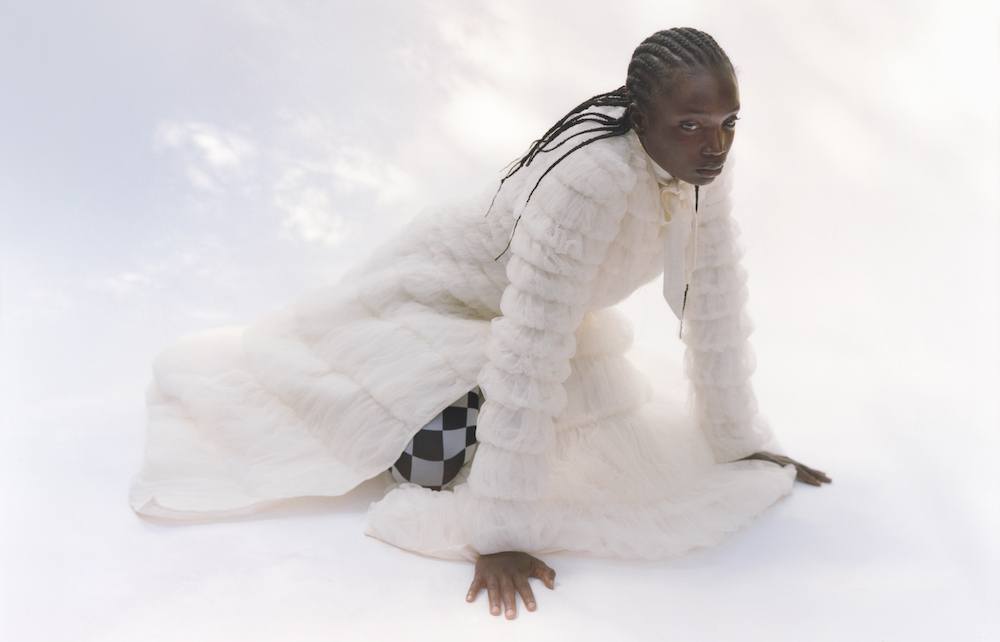
At 17, the third generation tailor left Lebanon to pursue an education in London, before moving back aged 24 and launching her own sustainable label alongside her mother in 2016.
But although her mother was already a successful fashion designer with over 30-years of experience back home, Merhej revealed that her own foray into the industry began with self-learning. “My mom was too busy. She wasn’t like ‘oh, I’m going to sit and teach her how to sew and teach her how to do this,’” said Merhej. “And I really appreciate that, because fashion is a really tough business.”
Merhej had to take pattern-making classes for a year and a half before she felt she was on “her mother’s level,” as she put it. The mother and daughter duo went on to develop pieces for the brand of clothing known for its bulbous silhouettes, corset-style detailing and flouncy, feminine ruffles.
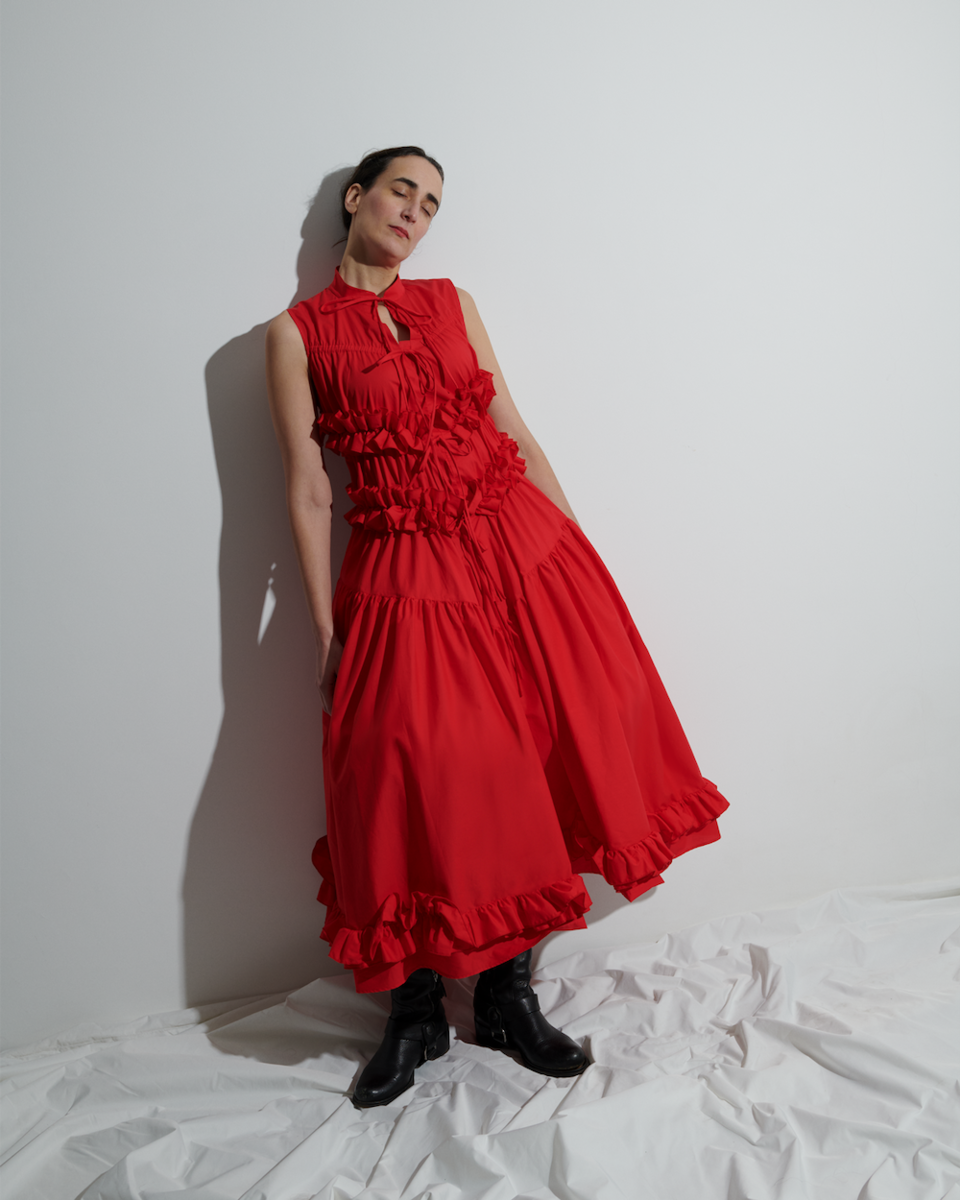
“The brand aims to challenge perceptions of femininity, but in a beautiful way,” said the designer. “When people look at the clothes, they might think that they’re not very radical due to our perception of what radical is. But when you take my clothes and display them in shops in Beirut, they’re really the opposite of everything that is found there,” she added.
Merhej has a point. When one thinks of classic Lebanese designs, one cannot help but think of the glamorous red carpet gowns and gorgeous couture creations that come out of Beirut season after season.
“It was actually really hard to get recognition in the Middle East,” said Merhej. “I had to really go outside the region to find people that would understand what I’m doing,” she added, noting her relocation to Paris following the tragic Beirut explosion on Aug. 4.

As a result of her hard work, Merhej’s designs are now being recognized. Last week, she made fashion history after being announced as one of 20 semi-finalists for the LVMH Prize 2021, making her the first-ever Arab woman to be shortlisted as a semi-finalist for the award.
“It’s already incredible we even got to the semi-finals,” said Merhej. “It will be even more incredible if we get to the finals, but I think even just to get to this point is pretty amazing.”
Her Lebanese label has also elicited a positive response for its strong commitment to sustainability.
Merhej’s most recent fall 2021 ready-to-wear collection, for example, features fewer looks, ethical production and a complete absence of buttons and zippers, which often end up in the trash even after a garment is recycled.
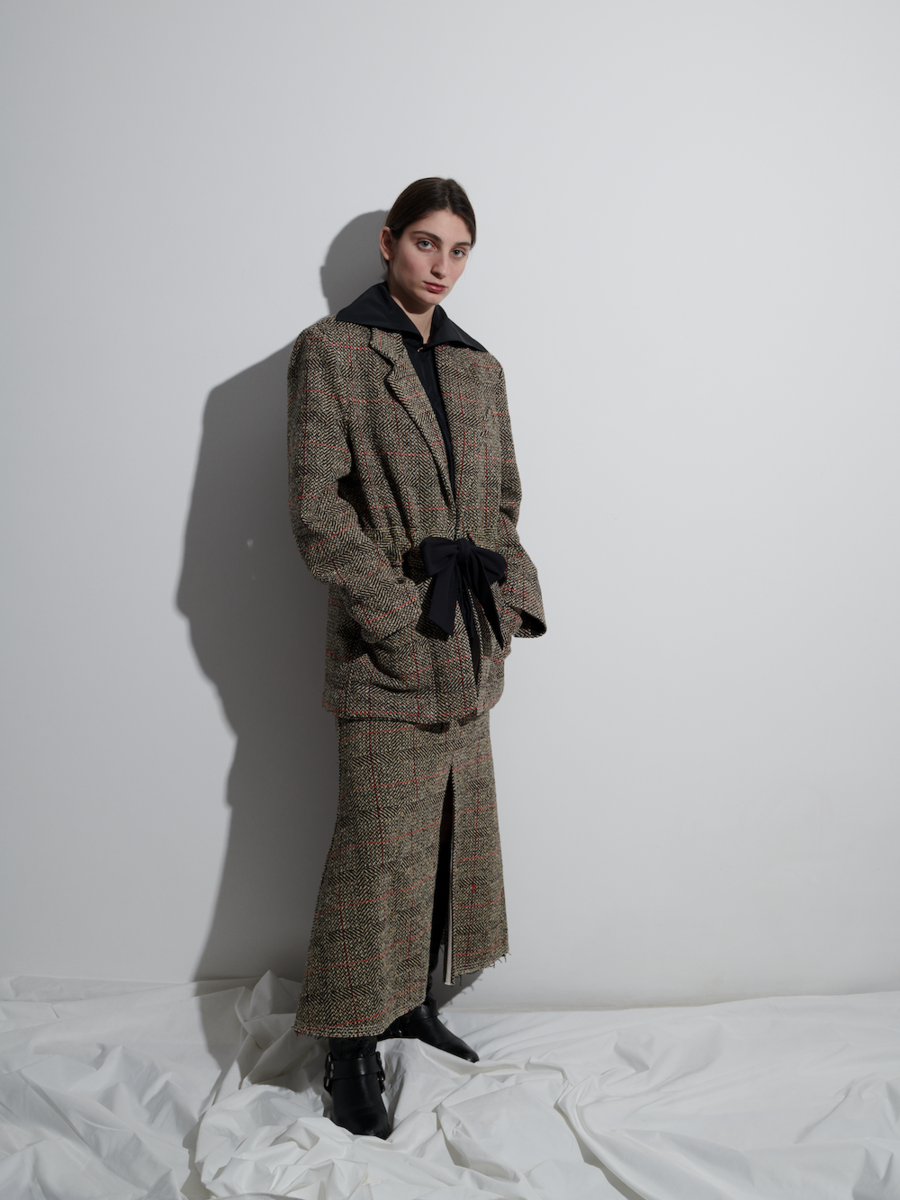
“I was raised to approach fashion ethically since before I even knew that sustainability was a term,” said Merhej. Her sustainable approach to fashion was further encouraged by her father, an engineer, whose lessons taught her the importance of producing something to the highest quality so that it lasts over time.
“I think the most sustainable thing you can do is design things with a lot of consideration. You have to make sure that what you’re designing actually has a purpose, that it’s beautiful, and it’s something people want to keep and desire — and that you’re using ethical conditions to produce it,” Merhej said.
“Everything around me is constantly being destroyed in this country,” she added. “I am trying to make something that’s going to be really beautiful and that stands the test of time for the women that inspire me.”
